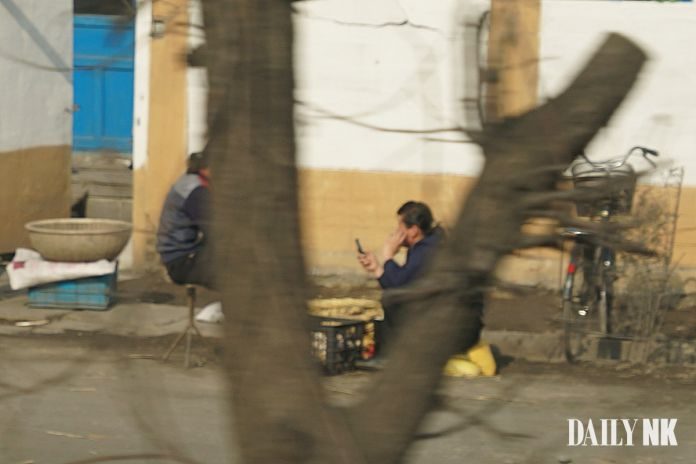Ordinary North Koreans sometimes fall victim to hacking and other forms of cybercrime, Daily NK has learned.
“Some people suffered harm from brute-force attacks on the Mirae and state networks, and some suffered harm when their mobile phones are illegally hijacked,” a source in the country told Daily NK last Tuesday.
North Korea uses a “walled garden” intranet that can be accessed only from inside the country, rendering attacks from abroad highly unlikely.
Essentially, with the exception of the extreme minority of North Koreans with external internet access, almost nobody in the country is exposed to cyberattacks from abroad.
This means local North Korean hackers are attacking their fellow citizens to steal their account information.
The source said that, in fact, a top second-year student at Pyongyang University of Science and Technology was arrested for hacking late last year.
“However, it later proved that he was just fooling around to relieve his boredom, so he received no criminal punishment, nor did the incident blow up politically,” he said.
North Korea selects its best students to become “IT talent,” but some of those trained in IT skills are using them to hack other North Koreans.
“Some people have had their bank accounts attached to e-commerce apps emptied out after their usernames and passwords were stolen,” said the source. “The Ministry of State Security once launched an intensive investigation of banks because of this.”
According to him, the Ministry of State Security’s Bureau of Electronic Supervision is in charge of defending against attacks on the state network, while the Ministry of Information Industry handles the ordinary intranet.
As such, it appears the two organizations split responsibility for responding to cyberattacks that target North Korea’s public or civilian sectors.
In South Korea as well, two organizations — the National Cybersecurity Center and Korea Internet & Security Agency — split responsibility for preventing and responding to cyber attacks.
There have even been cases where North Koreans have bought used smartphones infected with malicious code installed in the devices by hackers.
“Weird things sometimes happen to people who unknowingly buy hacked mobile phones at the market,” said the source. “When the idea of hacked mobile phones was unthinkable, people didn’t care if they bought new phones or old ones. But that’s no longer the case.”
He said phones sometimes suddenly turn on and operate by themselves to execute files, or they suddenly turn off. There have even been cases where hackers blackened out the faces in saved photos, or erased all the photos on the phone at once.
Hackers seem to be using remote control to operate peoples’ phones or damage or steal files.
The source said when some North Koreans buy used phones, they take along young technicians familiar with computers. Buying from trusted sources is another method North Koreans use to avoid buying hacked phones.
“When hacking of mobile phones was prevalent in March [of this year], the Ministry of State Security launched an intensive 60-day secret investigation in Pyongyang, Pyongsong and Sariwon, confiscating phones with problems, but providing no compensation [to the buyers of the phones],” he said. “Sales centers or individual sellers don’t compensate for losses either, so people are now being cautious on their own.”
Please direct any comments or questions about this article to dailynkenglish@uni-media.net.



















